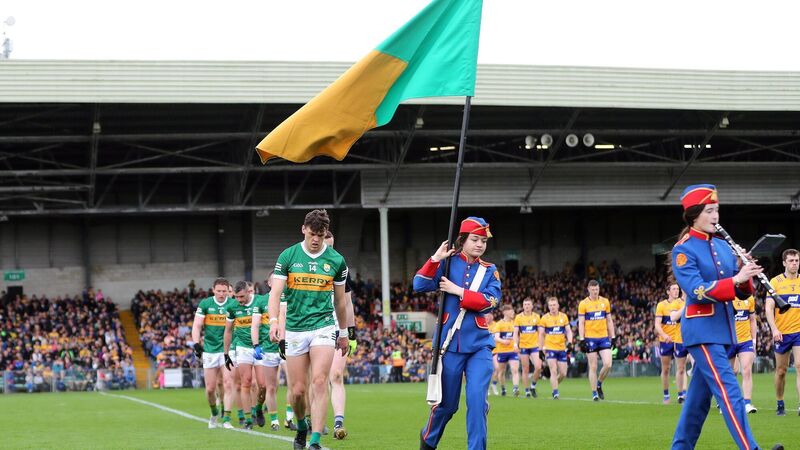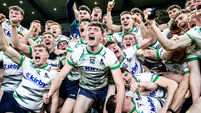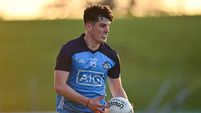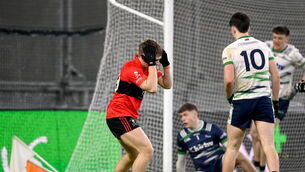Christy O'Connor: Cliffords' class shines through on emotional day

LEADING FROM THE FRONT: Kerry's David Clifford leads his team during the parade. Pic: INPHO/Bryan Keane
Just as the PA speaker began announcing a minute’s silence in the Gaelic Grounds on Sunday, David Clifford was offering his final words to his team-mates in the huddle. After Clifford finished speaking, he clapped his hands before he and his brother strolled with their team-mates to gather along the 45-metre line to stand together in memory of their late mother Ellen.











